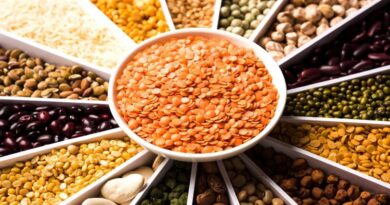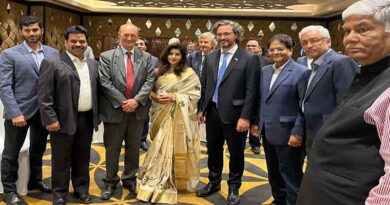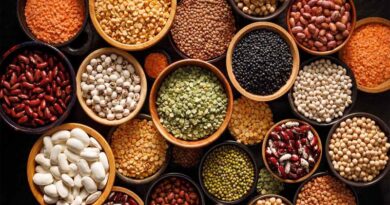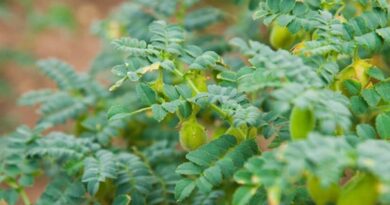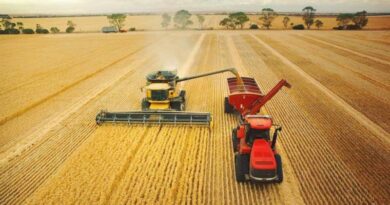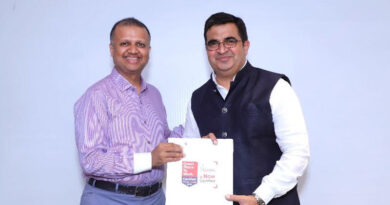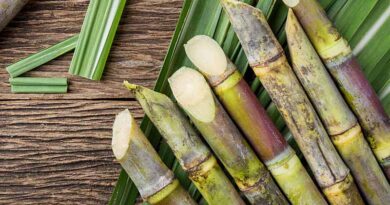India Pulses and Grains Association celebrated 4th World Pulses Day 2022
11 February 2022, Mumbai: India Pulses and Grains Association (IPGA), the nodal body for India’s pulses trade and industry, successfully hosted virtual celebrations on the 4th World Pulses Day on behalf of India conveying a global message of “Go Green with Pulse Protein”.
The event brought together international audiences for a common goal of creating awareness of the benefits of pulses as well as drive the agenda of increase in consumption. The live event highlighted the role of pulses as the most sustainable crop in the world.
IPGA hosted a live webinar on Thursday, February 10, 2022 from 3 pm IST onwards with eminent speakers like; Shri. Amitabh Kant, CEO, Niti Aayog as the Chief Guest, Dr S K Malhotra – Agriculture Commissioner, Ministry of Agriculture and Farmers Welfare and Mr. Sunil Kumar Singh, Additional Managing Director, NAFED as key note speakers.
Some of the other eminent speakers were Cindy Brown – President, GPC, Greg Cherewyk, President – Pulse Canada, Sachin Khurana, India Representative, USA Dry Pea & Lentil Council, Robynne Anderson – President, Emerging Ag Inc., Prof. Rajiv K Varshney – Research Program Director, Accelerated Corp Movement, ICRISAT, Varun Deshpande – Managing Director, The Good Food Institute India, Vastal Lilani – President, Overseas Agro Traders Association Myanmar and Dr. Roshani Sanghani – Allopathic Doctor Hormone Specialist Aasaan Health Solution, Mr. Sunil Patwari – President, Singapore Pulses Federation and Yogesh Thorat, MD, Maha FPC. Ms Akanksha Ghai (BVeg Foods), Tarak Badkas (Altein Ingredients), Chandni Jafri (Earth Craft Shop) Chirag Sabunani (Supplant Foods) are the panelists for discussion on Smart Protein: A new frontier in pulse innovation. Manisha Gupta, Editor- Commodities and Currencies, CNBC 18 was the moderator at the event.
Speaking on the occasion, Mr. Bimal Kothari, Vice Chairman – IPGA said, “I am convinced that it is time for India to focus on pulses and oilseeds as we did with cereals during Green Revolution. Pulses deserve the similar kind of policy, research and investment support. With the current govt attention, India’s production of pulses has reached a new high of 23-25 mn tons.” Citing that India has a large processing industry with several thousand dal mills across the country, Mr. Kothari further added that “most of the dal mill units are too small and do not enjoy scale of economies. The govt. should consider instituting a ‘Dal Mill Modernization Fund’. To modernize Dal mills.
Despite being the world’s largest producer, our per capita availability is low even as per nutritional standards. Hence, it is important that we boost domestic consumption of pulses primarily to fight widespread malnutrition and under-nutrition.”
Mr Amitabh Kant, CEO, Niti Aayog said, “Food production, food security and climate change are interlinked. Changing climate will continue putting pressure on agriculture ecosystem. Droughts, hurricanes and floods will continue to pose threat to agriculture and in turn food security. Future of food is certainly pulses and they can play a key role in addressing the problem of food security. Pulses are drought-resistant, are affordable sources of protein and also help keep soil healthy. Pulses moreover, have genetic diversity and this paves the way for development of more pulse varieties that are climate-change resilient. Pulses production has increased from 8.4mn tonne in 1961 to 25 million tonne in 2021. This indicates there is lot of untapped potential in pulses cultivation through technological breakthroughs.”
Dr. S K Malhotra – Agriculture Commissioner, Ministry of Agriculture and Farmers Welfare, shared his views, he said “Multi-pronged strategy needs to be followed for agriculture production and development, particularly for pulses. In 2015-16, total production was 16.2 million tonne for pulses against a 25million tonne of requirement. Then a roadmap was made to achieve productivity-led growth. This could only be achieved by coming up with new varieties with high yielding in nature with special resilience towards drought and other climatic conditions. This was implemented under the National Food Security Mission Programme by following a cluster-approach as part of which, better quality of seeds were demonstrated and provided to farmers. Mission approch for promotion of pulses helped for large-scale adoption which resulted in high yield. With this programme, we have reduced import-dependence of pulses to an extent that we are now exporting pulses. We have reached to self sufficiency from pulses deficiency. The next year 2023 will be celebrated as International Year for Millets and pre preparations are on. We seek support from all stakeholders for success. My compliments to IPGA for good organization of the World Pulses Day 2022 event”.
Mr. Sunil Kumar Singh, Additional Managing Director, NAFED, said, “Government of India has been taking a slew of initiatives to boost pulse production. If the pulse production reaches 30 million MT, it would be a good way to provide pulses at an affordable price. This cannot be achieved through one part of the value chain alone and therefore, underlines the role from farm level to retail level so that this cheap source of protein is available to the poor to help reduce malnutrition. We at NAFED have been supported by the Government of India through fund, policy and infrastructure support. Now, it is our responsibility on how we continue to support them. Lot of work needs to be done to enhance research to meet agriculture and climate challenges which are reducing production level or damaging produce.”
Research experts on the other hand, emphasised the potential of agriculture innovation and breakthroughs by coming up with a climate change-resilient variety of pulses. Elaborating on the research conducted on these lines, Mr Rajeev Varshney, Research Program Director – Accelerated Crop Improvement underlined the importance of genomic sequencing to boost crop varieties.
“Genomics and breeding innovations are one of the most effective ways of coming up with high-yielding pulse crop varieties. India has come a long way however; improvement of crop is a must. Research should be focussed in the direction of improving qualities such as pest resistance, enhanced productivity, disease resistance, sustainability, environmental stress-resistant and greater nutritional value. It is important to put in research to enhance crop productivity to meet the pulse production targets by 2030,” said Mr Varshney.
Mr Yogesh Thorat, Chairman, Maha FPC emphasised on sustainable production of pulses, their inclusive marketing. “Sustaining production of pulses requires research into field crop varieties that can help climatic changes crop varieties remain resilient. Biofortification of pulses and increasing their productivity from a nutritional point of view is a key challenge. More research in addition to policy support from government programmes is a must to achieve this. Yet another concern is making these pulse products reach the market. Partnership with farmers and farmer producer organisations and industrial players for primary and secondary processing. Schemes and programmes by incentivising private players will help undertake this,” Mr Thorat said.
Mr Varun Deshpande, Managing Director, Good Food Institute India on the other hand, spoke about pulse as a smart protein. Mr Deshpande said, “Protein sourced from animals poses a great challenge from a sustainability standpoint, especially in the wake of climate change. We do need to think about where we’re getting our food, especially protein and diversify the protein supply going away from animals. We may need to produce 50-70% more meat by 2050 – which clearly suggests an increase in meat demand. Finding a smarter protein supply is absolutely important in such a time and in a bid to achieve this, we need to encourage people to consume pulses albeit, giving them a smarter protein solution than pushing for changing their dietary habits radically.”
Mr. Vatsal Lilani, President – OATA Myanmar, said, “On this 4th World Pulses Day, we at OATA Myanmar send our best wishes to all in the pulse industry. We look forward to seeing a happy mix of import volumes and reasonable rates supported with stable and long-term trade policies through the course of this year which shall go a long way in the furtherance of plantings & trade between the two countries.”


